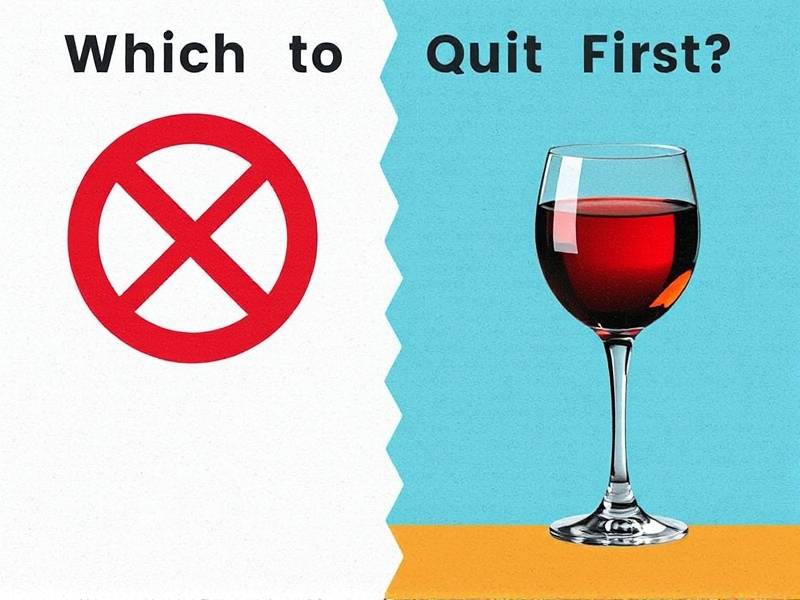Which to Quit First: Smoking or Alcohol?
Which to Quit First: Smoking or Alcohol? A Comprehensive Guide
Introduction: The decision to quit smoking or alcohol can be a daunting one. Both habits have detrimental effects on health, and it's often a challenge to determine which one to prioritize. In this article, we will explore the impact of smoking and alcohol on health, compare their risks, and provide insights on which one you should quit first.
I. The Impact of Smoking on Health A. Short-term Effects

- Immediate risk of heart attack and stroke
- Increased blood pressure and heart rate
- Reduced lung function
B. Long-term Effects
- Chronic obstructive pulmonary disease (COPD)
- Lung cancer
- Cardiovascular diseases
II. The Impact of Alcohol on Health A. Short-term Effects
- Impaired judgment and coordination
- Increased risk of accidents and injuries
B. Long-term Effects
- Liver disease (cirrhosis, hepatitis)
- Increased risk of certain cancers (breast, colorectal)
- Dependence and addiction
III. Comparing the Risks: Smoking vs Alcohol A. Mortality Rates
- Smoking: Higher mortality rates due to direct health effects like lung cancer and heart disease.
- Alcohol: Higher mortality rates due to indirect health effects like liver disease and increased risk of accidents.
B. Chronic Health Conditions
- Smoking: Directly linked to numerous chronic conditions.
- Alcohol: Indirectly linked to chronic conditions through its impact on the liver.
IV. Considerations for Quitting First: Smoking or Alcohol? A. Personal Health Status
- If you have pre-existing health conditions related to smoking, it may be more crucial to quit smoking first.
- If you have underlying liver issues or a family history of alcohol-related diseases, quitting alcohol might be more urgent.
B. Dependency Level
- Smoking: High physical dependence due to nicotine addiction.
- Alcohol: Varying levels of dependence depending on the individual's drinking habits.
V. The Importance of Professional Support for Quitting Habits A professional support system can significantly increase your chances of successfully quitting either smoking or alcohol.
Conclusion: The decision of whether to quit smoking or alcohol first depends on various factors, including your personal health status, dependency level, and the potential risks associated with each habit's long-term effects on your health.
Remember that both smoking and excessive alcohol consumption are harmful habits that should be addressed as soon as possible for the sake of your well-being.
By prioritizing the habit that poses a greater risk to your health or has a stronger hold over you, you can take an essential step towards improving your overall quality of life.
For personalized advice and support in quitting either smoking or alcohol, consult with healthcare professionals who can provide tailored strategies for success in overcoming these challenges.
Note: This article is intended for informational purposes only and does not replace professional medical advice or treatment options tailored specifically for an individual's needs.
